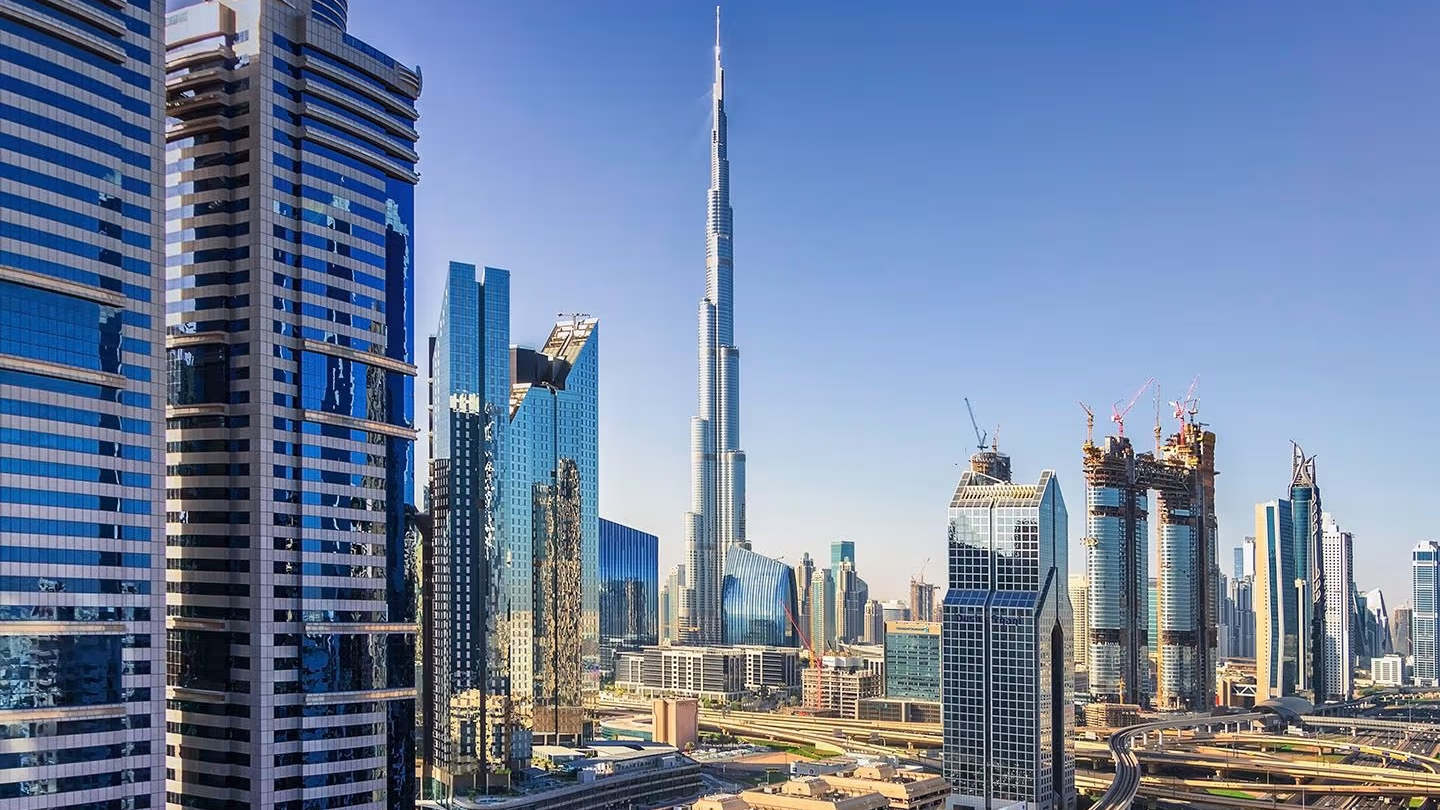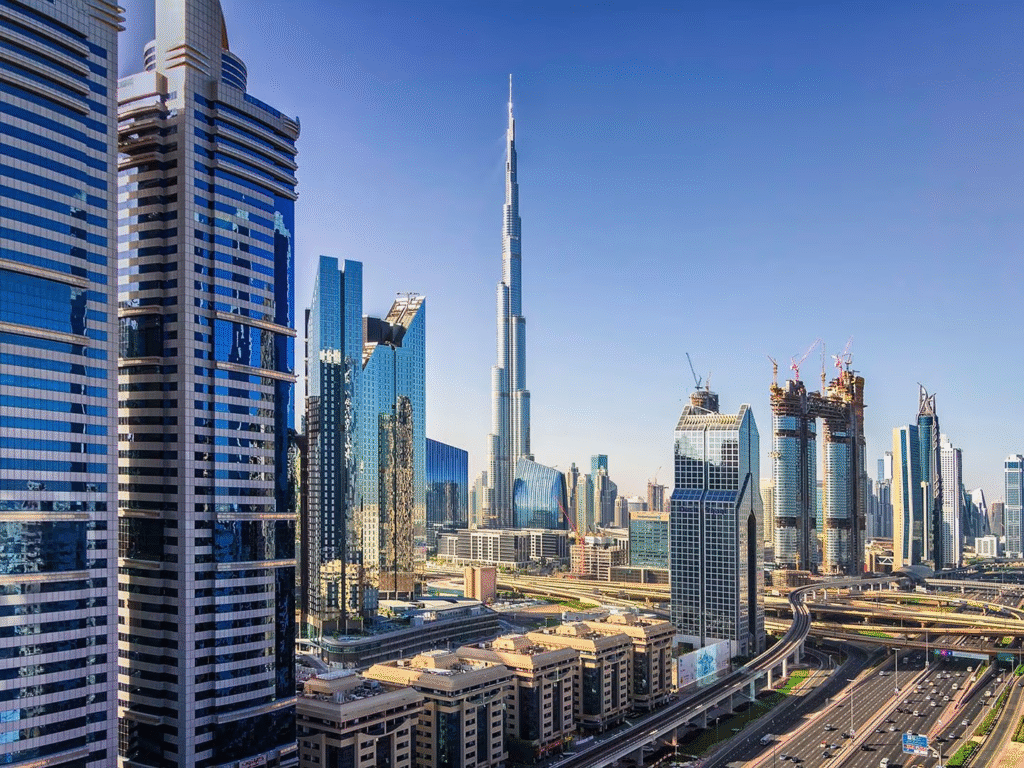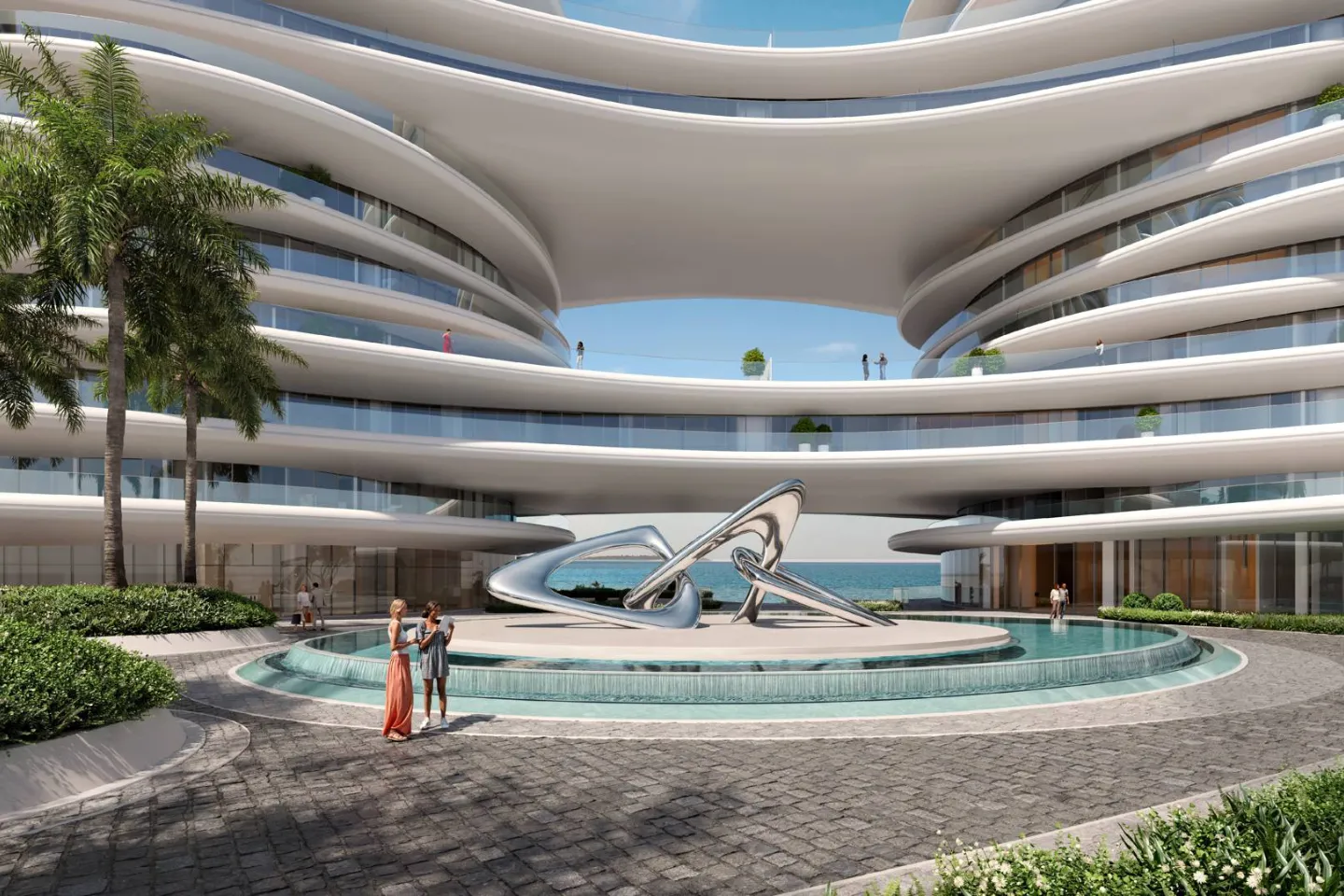Now Reading: Blockchain Boosts Dubai Real Estate: 5 Powerful Changes in 2025
-
01
Blockchain Boosts Dubai Real Estate: 5 Powerful Changes in 2025
Blockchain Boosts Dubai Real Estate: 5 Powerful Changes in 2025

Table of Contents
Dubai is known for innovation. From the world’s tallest buildings to man-made islands, the city never stops pushing limits. Now, Dubai is again leading the world by adopting blockchain technology in the real estate sector.
This new wave of innovation is changing the way people buy, sell, rent, and manage property. It is making the industry more transparent, secure, and efficient than ever before.
What is Blockchain and Why It Matters in Real Estate
Blockchain is a digital system of recording information in a way that is secure and transparent. It’s like a digital ledger that cannot be changed. Every transaction is recorded in a chain of blocks. Each block is connected to the next, making it impossible to change or tamper with the records.
In real estate, this means more trust and less paperwork. It reduces the chances of fraud, speeds up transactions, and lowers costs for everyone involved.
Dubai’s Vision: Becoming a Blockchain-Powered City

Dubai has always been at the forefront of using technology for better governance and public services. In 2016, the government launched the Dubai Blockchain Strategy, aiming to become the first city in the world powered by blockchain.
By 2020, Dubai wanted all government documents, including property transactions, to be secured on the blockchain. Today, many steps have been taken toward that goal, especially in the real estate sector.
The Dubai Land Department (DLD) is one of the first government entities in the world to adopt blockchain. Through partnerships with tech firms, DLD has created a digital platform that connects tenants, landlords, property managers, and government authorities—all on blockchain.
How Blockchain Benefits Real Estate in Dubai
1. Faster and Safer Transactions
Traditionally, buying property can take weeks or even months. There are many steps: legal checks, ownership verification, document signing, and bank approvals. With blockchain, all these steps can be completed digitally, with full transparency and safety.
2. Full Ownership Transparency
In Dubai, property ownership records are now stored on blockchain, making it easy to verify the true owner of a property. This helps reduce fraud and disputes.
3. Smart Contracts
Smart contracts are automated agreements that are stored on blockchain. They execute themselves when conditions are met. In real estate, they can be used for rental agreements, payments, and sales. This eliminates the need for middlemen and speeds up the process.
4. Lower Costs
With fewer agents, lawyers, and paperwork involved, buyers and sellers can save money on transaction costs.
5. Real-Time Access to Market Data
Investors and developers can access real-time property data through blockchain systems. This helps them make better, data-driven decisions.
Use Case: Blockchain for Rental Agreements
Dubai’s DLD has launched a blockchain-based rental platform that allows landlords and tenants to sign smart contracts online. These contracts are linked to government systems like DEWA (Dubai Electricity and Water Authority) and the telecom authority, making it easy to set up services once a rental contract is signed.
This innovation is particularly useful for expats and international investors who can now rent or manage property without physically being in Dubai.
Foreign Investment Made Easy
Dubai real estate has always attracted global investors, especially from India, China, Europe, and Russia. Blockchain technology now makes it easier and safer for foreign investors to buy property without being physically present.
Buyers can now:
- Verify property ownership
- Sign contracts digitally
- Make payments through blockchain-powered platforms
- Receive digital title deeds
All this adds up to a smoother and more secure experience.
The Rise of Tokenized Real Estate
One of the biggest trends emerging in Dubai is real estate tokenization. This means breaking down a property into digital shares, or tokens, that can be bought and sold on blockchain platforms.
For example, a $1 million apartment could be divided into 1,000 tokens worth $1,000 each. This allows small investors to get into the real estate market without buying the whole property.
Tokenization also makes real estate more liquid, meaning investors can buy and sell tokens like stocks, rather than waiting months to sell an entire property.
Several startups in Dubai are already offering tokenized investment options in luxury and commercial real estate. This is opening doors for young investors, especially from overseas, who previously could not afford to enter the Dubai market.
Challenges Ahead
Despite the benefits, blockchain adoption in real estate is not without challenges. These include:
- Legal and regulatory hurdles: While Dubai is friendly to blockchain, global standards are still developing.
- Public awareness: Not all property buyers or sellers understand how blockchain works.
- Technology costs: Initial setup for blockchain systems can be expensive.
However, the Dubai government and private sector are actively working to overcome these barriers through education, policy changes, and investment in tech infrastructure.
Looking to the Future

Dubai is proving that blockchain is more than a buzzword. It is using this technology to reshape one of its most important industries real estate.
As more countries watch Dubai’s success, it’s likely that other global cities will follow. From digital land titles to smart rental contracts and tokenized investments, the way we deal with property is being transformed.
And for Dubai, this transformation is not just about property. It’s about becoming the smartest, most efficient, and most attractive city in the world for business and innovation.
Conclusion
Blockchain is no longer just a concept in Dubai. It is a reality that is improving transparency, speed, and security in real estate. Whether you’re an investor, a buyer, a developer, or simply someone looking to rent a home, blockchain is making the process easier and safer.
As Dubai continues its journey toward becoming a blockchain-powered city, the real estate sector stands as a shining example of what the future looks like digital, trusted, and borderless.
Read More:- Shobha Realty Launches Its Most Luxurious Project Yet—Full Details Inside 2025





















